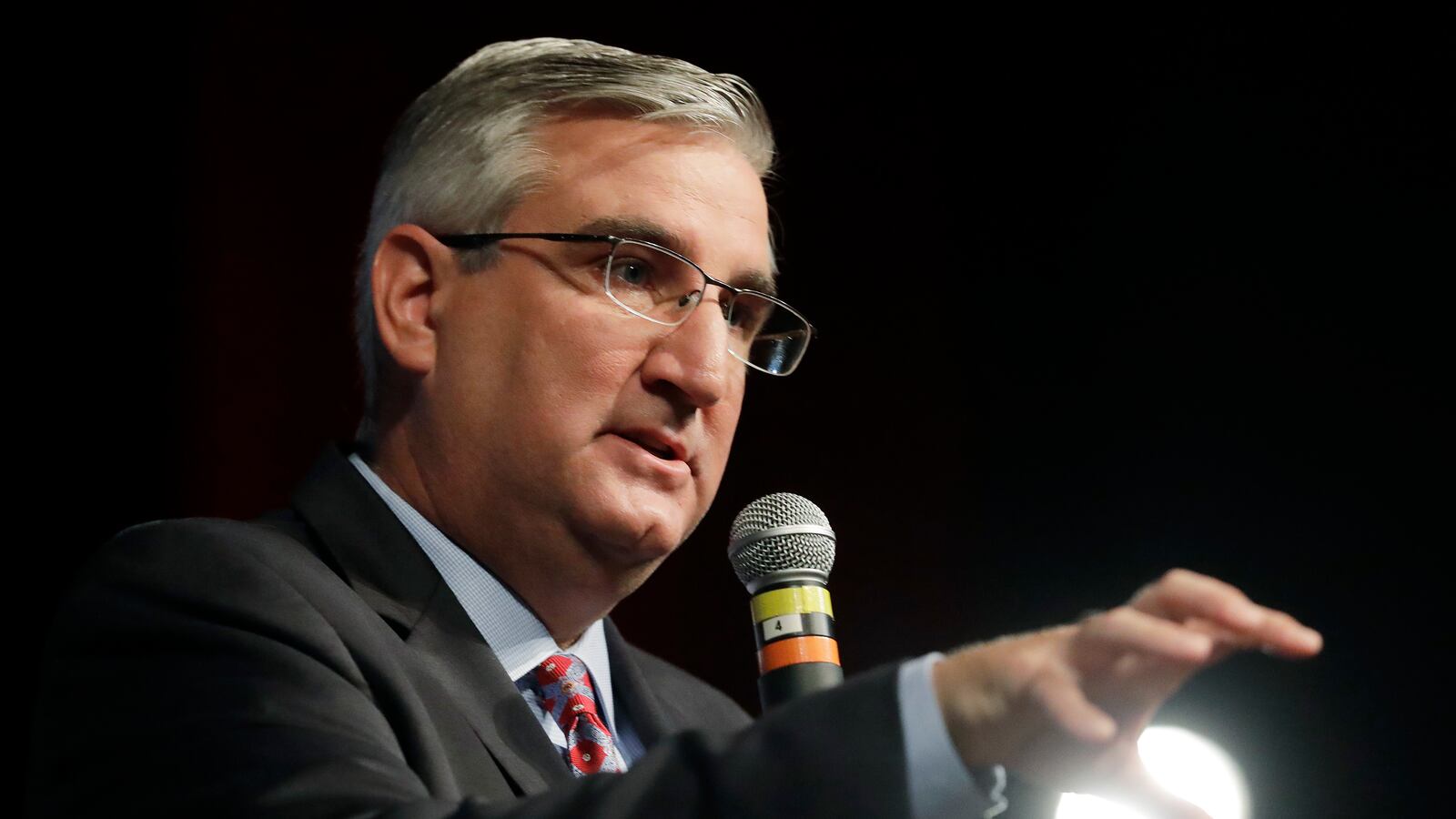Indiana Gov. Eric Holcomb managed a rare feat in his first year on the job — to check nearly every box on his education agenda for 2017.
At the beginning of the year, Holcomb set four specific goals for K-12 education: making the state superintendent appointed by 2021; doubling state funding for preschool; adding funding for school internet access; and better coordinating science, technology, engineering and math initiatives across the state.
It wasn’t always clear whether those proposals would pass. But Holcomb was ultimately able to get what he wanted with fairly little drama — unlike his predecessor, Vice President Mike Pence.
“The legislature over-delivered,” Holcomb said Tuesday. “Now it’s time for us to take these tools and new resources and put them to work.”
Holcomb’s success likely hinged both on his collaborative approach to working with lawmakers — in contrast to the more ideological and aggressive approaches, respectively, of former Gov. Pence and his predecessor, Gov. Mitch Daniels — and the less controversial makeup of his education priorities.
Pence failed to make much progress when he tried to break new ground in some way — like with plans to re-imagine teachers’ roles in schools — or when he faced vehement opposition, like his attempts to further reduce union negotiating power. Holcomb’s priorities, for the most part, were harder to argue with: a need for more preschool for poor children, better school internet access or more opportunities to prepare kids for the workforce and science- and math-related fields.
Although Pence was ultimately able to push through many of his education priorities, such as establishing a preschool program, driving up career and technical education funding, and increasing support for charter schools and vouchers, his efforts brought more opposition from lawmakers, even those in his own party.
Take preschool.
When Pence put out the call for a state-funded pilot program after years of debate, senators were extremely skeptical. In the waning days of the 2014 session, they stripped any meaningful investment from the bill, turning it instead into a suggestion to study the issue over the summer. At the last minute, after Pence himself testified before lawmakers, the funding was restored, and the program became a reality.
This year, the same last-ditch attempts to kill the proposal were absent. After the Senate proposed only increasing preschool spending by $4 million, lawmakers came back with a $20 million-per-year plan in line with Holcomb’s initial ask.
Holcomb also had the benefit of not having to go head-to-head with the state schools chief.
Pence’s frequent battles with then-state Superintendent Glenda Ritz were a notable part of his administration. Current Superintendent Jennifer McCormick, on the other hand, was fairly aligned with Holcomb’s goals from the beginning — even signing on to support his call to make her position appointed, rather than elected, in the future.
That’s the one area in his education policy agenda where Holcomb didn’t eke out a full win — but it was arguably also the most controversial part of his agenda, with many educators and some lawmakers asserting that the move takes away an independent education voice at the Statehouse. The proposal has been debated in some way for more than 30 years.
Holcomb originally supported a 2021 start date for the appointment, which would allow him to make the appointment if elected to a second term. Instead, this year’s legislation would have it begin in 2025, meaning McCormick could seek a second term and Holcomb wouldn’t be the executive empowered to make the first secretary of education pick.
Holcomb said Tuesday that he has no desire to revisit that legislation in order to change the effective date.
He reiterated his goal of collaboration Tuesday when addressing reporters during a press conference, pointing to his relationship with McCormick.
“We’ll continue to meet and collaborate and work on issues that we both know are of the utmost importance,” Holcomb said. “And we’ll get there together. I look forward to it.”
As far as bills that weren’t on his agenda, Holcomb today said he plans to sign into law Senate Bill 567, which would appoint emergency financial managers in the Gary and Muncie school districts. He also indicated support for House Bill 1003, which would replace the state’s ISTEP test with a new program to be called “ILEARN” in 2019.
You can find other education bills that moved ahead this session here in our legislative wrap-up.

